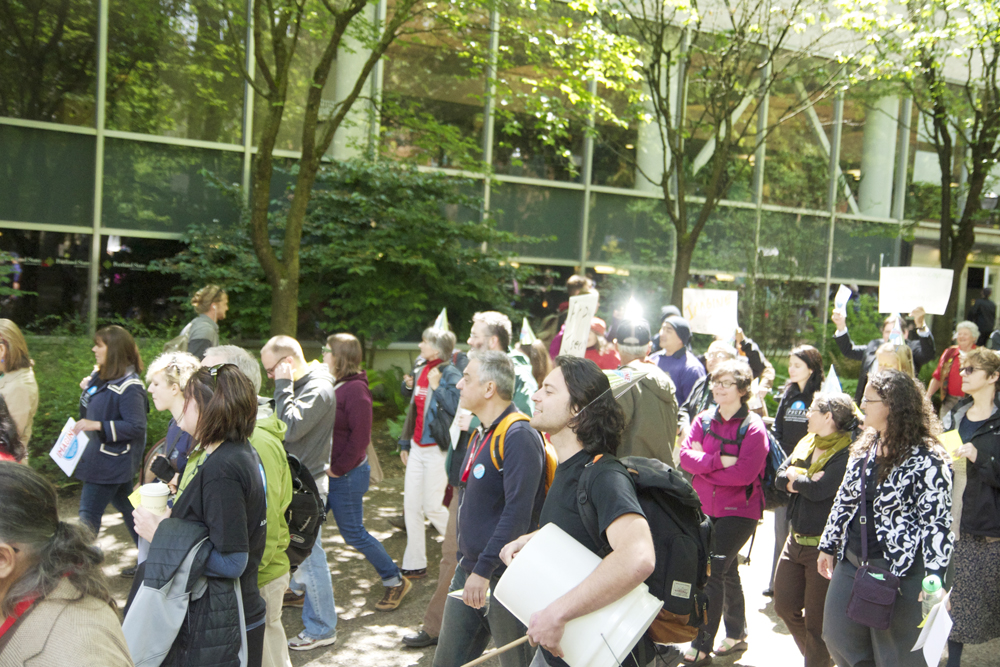My least favorite word is zeitgeist, which came to English directly from German and roughly translates to “the spirit of the time.” Maybe it’s because the word never comes up in everyday conversation or that most people seem to use it incorrectly when it does, but I really can’t stand the word.
After this term, I’ll be done with my minor in German; I really love the language, so you’d think that I’d like the word, or at least be neutral toward it. But no, I really hate it. There is something so overly pretentious about the word zeitgeist that, even when it’s used correctly, it really gets under my skin.
Words like zeitgeist make me think about the uses for language and how going to a university shapes the way that we speak and understand the world. As students, we all go to school in order to learn new things, new concepts, new words and new ideas.
We all want to get smarter and understand subjects we didn’t understand before, but there is often a fine line between using a new word that you’ve learned intelligently and using so many long or unnecessary words that you no longer speak like a normal person.
For me, this idea seems especially exemplified with the word zeitgeist. For others, words like dichotomy—a division or contrast between two things—rub them the wrong way. Everyone has different words or phrases that they simply don’t like or will avoid using, and the idea of disliking certain words or someone’s word choice seems fairly universal.
From personal preferences to personal experiences, language is different for all of us, and the way that we choose to speak can go a long way in determining the way other people perceive us. No one likes to talk to someone who is constantly using words the listener doesn’t understand. With the knowledge that we will undoubtedly continue to gain knowledge throughout our schooling and subsequent careers, it’s important to understand the way our educations can shape the way other people view us.
Just as it’s important to learn new words for your own understanding, it’s also important to learn the way that other people will react to these new ideas and where these ideas have a place in our lives. Some ideas or ways of speaking are only deemed acceptable in certain situations. I wouldn’t talk to my friends the same way I would talk to my mom. If I switched the way I talked around them, it would cause a lot of confusion.
The way we speak and learn to speak at school is very similar to the different ways we speak to different people, but sometimes it’s easy to forget that. The way that you talk in your classes is likely tailored to that specific environment and doesn’t always translate to other situations. It might not seem strange to you, but I can guarantee that other people are going to notice when your speech doesn’t fit the situation in the way they believe it should.
Your use of long words and area-specific jargon is not likely to impress your friends like you think it might. Keep that way of speaking to an academic setting, and please, please, please, avoid any mention of zeitgeist.







So, is the takeaway from this that we ought to dumb ourselves down lest we make others uncomfortable? What a dreadful thought! Our language is robust, flexible, and worth appreciating by exploring it’s limits and by exploring ideas we might not otherwise touch upon in ordinary life. We, as educated people, have a rare opportunity to encounter concepts and language that do not occur often everyday life. It would be a shame not to make use of that gift. If we are to let knowledge serve the city, how does one accomplish that by squandering the knowledge and keeping it to oneself?
I agree there’s a time and place for everything, and that includes the language of the “educated”
You don’t get to be my friend if you don’t know what a dichotomy is.
Perfect. People who use the word try to appear smarter than they really are. None of my friends with 32+ ACTs say zeitgeist.